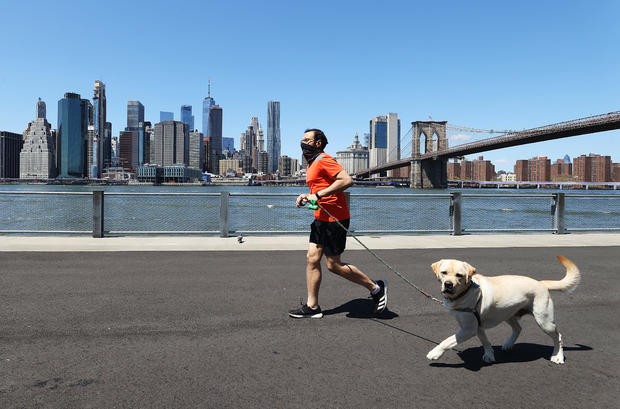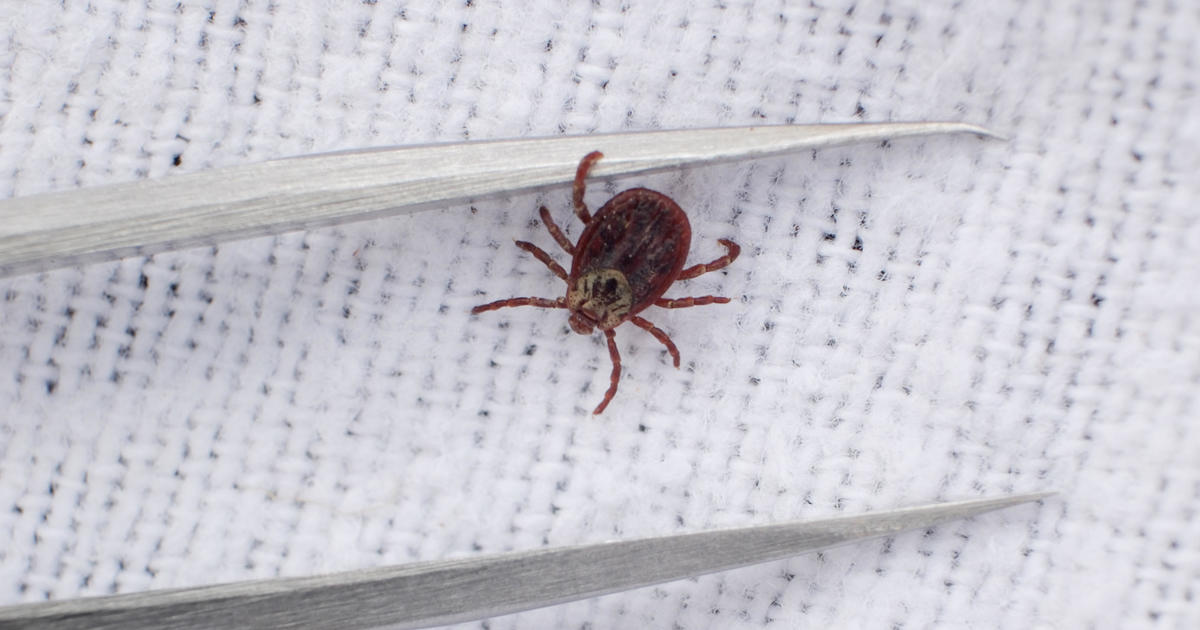How to safely run outside amid the coronavirus pandemic
In a time when gyms are closed due to stay-at-home orders, running is one of the most convenient exercises to do on your own. And while exposure to the coronavirus is a risk, experts say that exercise can be beneficial for fighting the virus, and that there are many measures a runner can take to protect themselves and others.
In one study, a researcher from Appalachian State University found that moderate-intensity physical activity can improve one's ability to fight viruses and "reduces morbidity and mortality from viral infection and respiratory illnesses including the common cold, pneumonia, and influenza."
Therefore, a "primary" strategy to prevent the risk posed by COVID-19 would be to adopt "lifestyle practices consistent with good immune health," including exercise, said David C. Neiman, the study's author.
While Neiman's data says regular moderate-intensity physical activity could be beneficial, Neiman warned against over training the body, which can have an adverse affect when it comes to fighting viruses.
"Taken together, existing data support the viewpoints that (1) overtraining is not recommended in areas of the world where risk of COVID-19 transmission is high and (2) intense exercise should be avoided when the person is infected with COVID-19 or other systemic viruses," Neiman wrote in the report, which was published in the Journal of Health and Sport Science.
Professor Erin Bromage, Comparative Immunologist and Professor of Biology at the University of Massachusetts Dartmouth, agreed that there are health benefits to exercising during the pandemic. But he cautioned runners to consider their environment before starting a workout.
"If you are sitting in a well ventilated space, with few people, the risk is low," Bromage wrote in a blog post. "If I am outside, and I walk past someone, remember it is 'dose and time' needed for infection," he added. "You would have to be in their airstream for 5+ minutes for a chance of infection."
Bromage added that joggers may release more virus particles due to deep breathing, but that the exposure time is also lessened due to the speed at which they are moving. "Please do maintain physical distance, but the risk of infection in these scenarios are low," Bromage wrote. He recommended basic preventative measures like washing your hands and not touching your face.
Runners can also prevent the spread of the virus by wearing a mask while running outside, Brian Labus, assistant professor at University of Nevada's School of Public Health, told CBS News.
"The mask doesn't do anything for you. If you're in a space around other people, you can put it on, but in general if you're out by yourself, you don't need it," Labus said. He added that even though keeping six feet apart is the standard social distancing guideline, runners may want to give each other more space.
"We know that six feet is about a safe distance – the risk really starts to go down in calm conditions if you're standing still. If you start running, you could spread it a little more further. So, it makes sense to give yourself a little more space from other people," Labus said.
"Plus, say you were running behind somebody and they stop unexpectedly. You're going to be very close to them rather quickly," he added. "So, you want to give yourself that option to keep that distance but also, think about how [the virus] could blow with the wind and potentially spread to other people around you."
For those concerned with overtraining, Labus said that's not likely to happen, unless you're training for something like an ultramarathon. "The benefits of getting out and getting some exercise and all of that outweigh any potential damage that could be done while you're just out jogging," Labus said. "Of course your body is going to have to recover after any exercise you do, but we never tell people not to exercise for that reason."
Labus said that there is also no need to avoid running in either cold or warm weather. "Cold weather does not make you sick. Cold weather can sometimes make your asthma worse or something like that...but basically the temperature isn't really going to matter in disease transmission," he said.
"Running outside is really no different than any other interaction with other people. You're basically just trying to avoid close contact with other people. Then you can safely run outside or do any other outdoor activities," Labus said.





